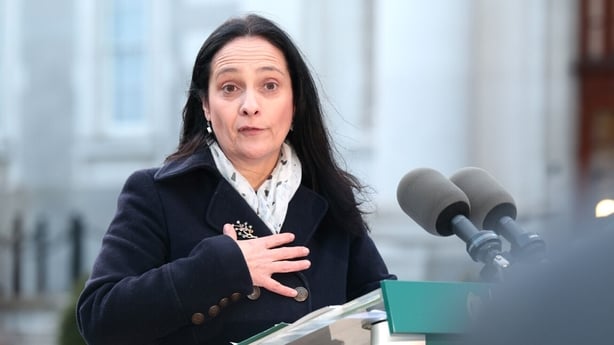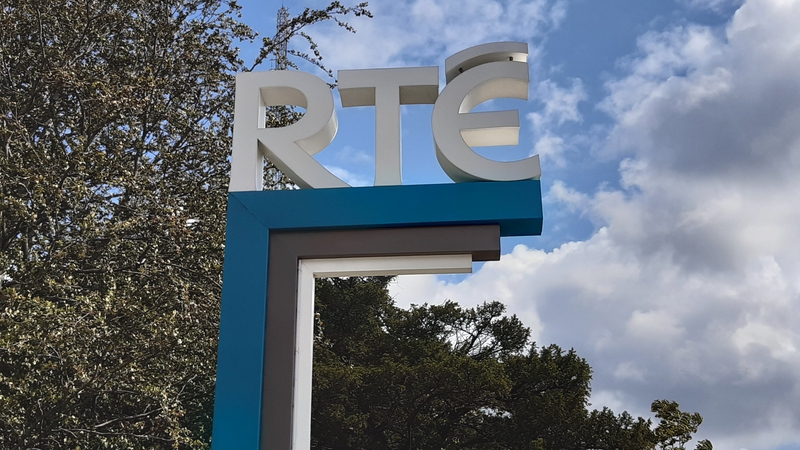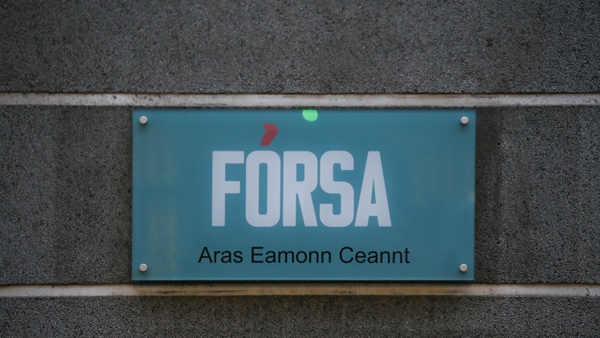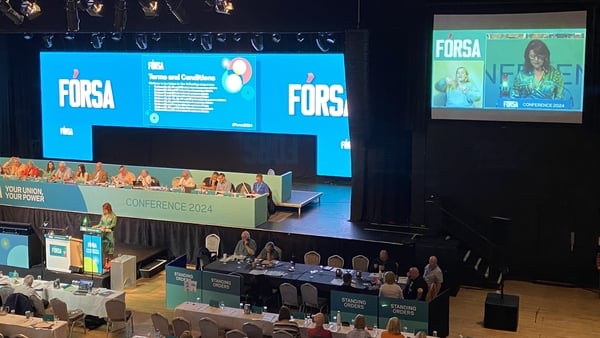There is an unfortunate anniversary approaching at RTÉ.
It has nothing to do with celebrating the successful run of a TV show or radio station. There will be no parties, cakes or balloons for this particular occasion.
In just over a month from now it will be one year since the payments controversy involving Ryan Tubridy was first revealed.
On the afternoon of Thursday 22 June 2023, the RTÉ board issued a shock statement announcing that between 2017 and 2022, Mr Tubridy had received a series of payments totalling €345,000 above his annual published salary.
No one could have predicted the dramatic series of events that followed.
Amid a deep dive into governance and financial management at the national broadcaster, there were resignations, Oireachtas committee hearings and expert reviews.
The terms 'barter account', 'flip flops' and 'Toy Show the Musical' were uttered on countless broadcasts and printed in thousands of articles.
Eleven months on, three reports into RTÉ were released this week designed to draw a line under the controversies and allow the Government to finally make a decision on a future funding model for public service broadcasting.
The latest reports
The three reports published on Tuesday were hard-hitting.
The controversial barter accounts were "hiding in plain sight", the review concluded.
The Government also came in for criticism, with the report finding that the oversight of RTÉ by the Minister for Media, the Department, and the Oireachtas proved "ineffective in preventing the issues that have arisen".
A review of fees and HR matters called for major reforms when it comes to engaging and paying presenters.
It said that exit payments needed to be fair and equitable.
The committee also called for an urgent review of the allowances paid to RTÉ staff because it said the current system lacks clarity and in some cases justification.
It found that there was "no valid basis" for many of the transactions that were paid through the barter account and revealed that three years of financial records had been lost during an office move.

RTÉ said it accepted the reports' recommendations in principle and added that many moves are already underway to address the concerns raised.
In a demonstration of its commitment to reform and transparency, its statement on Tuesday evening included details of the total amount of compensation paid to key management personnel in 2023, something which is usually contained in its annual reports.
While many steps may already have been taken by RTÉ, other reforms will take time.
The National Union of Journalists (NUJ) warned that the timescales were unrealistic when it comes to changing terms and conditions of employment, reforming pay structures and reviewing allowances.
The controversies at RTÉ have shone a light on the role of the directors that sit on boards and the importance of asking questions, speaking up and shouting stop.
Following the release of this week's reports, the Institute of Directors (IoD) Ireland said it would study the findings and continue to engage with its membership further to explore learnings to enhance State board governance.
"A recent survey of our members found three out of five directors see personal or reputational risk as the main deterrent to being on a State Board," IoD Ireland said.
I think we need to be saying that we are an advanced Northern European democracy and that 80%-90% of RTÉ should be funded by the public.
Jane Suiter is a professor in the School of Communications at Dublin City University and director of DCU's Institute for Future Media, Democracy and Society.
She is hopeful that the release of these latest reports will see a line being drawn in the sand and allow everyone to move forward.
"I think that the most important thing is thinking about what's the underlying reason why we saw all those multiple failures of governance," Prof Suiter said.
She believes that many of the problems stem from the fact that RTÉ is reliant on revenue from both the licence fee and commercial advertising.
"It's having that two-pronged thing where on the one hand, you have to keep advertisers happy and on the other hand you are providing a public service, that has been at the heart of a lot of the problems and the massive failures of governance.
"I think we need to be saying that we are an advanced Northern European democracy and that 80%-90% of RTÉ should be funded by the public," Prof Suiter said.
Future funding model
RTÉ has six weeks to consider the reports' findings and will then share an implementation plan with the Minister for Media Catherine Martin.
Publishing the reports this week, Ms Martin said the Cabinet will take a decision on the future funding of public service broadcasting before the summer recess but added that there are still "differences of opinion" on the issue.
The options include continuing with the licence fee with the Revenue commissioners taking charge of collection, direct exchequer funding or a so-called 'hybrid model' that would see a reduced charge for households supplemented by exchequer funding.
Ms Martin described that final option as the "the worst of both worlds".
She is in favour of full exchequer funding for RTÉ but others in Cabinet, including Tánaiste Micheál Martin, are opposed to the idea amid concerns about how it might impact editorial independence.
Read more:
Weak risk management 'directly contributed' to RTÉ crisis
Recommendations will improve governance at RTÉ - Minister
Barter account only off-sheet account held by RTÉ - audit
Speaking on RTÉ’s News at One on Wednesday, Ms Martin said more than half of spending on public service broadcasting was funded by the exchequer last year.
"To be clear, I think with all models, there is a risk of a level of political involvement so even the licence fee rate as we have now is set by Government," Ms Martin said.
Before the current controversies ever erupted at RTÉ, the Future of Media Commission had recommended replacing the licence fee with direct exchequer funding. The commission also proposed that guard rails could be put in place to protect RTÉ from political interference.
People are 'sick and tired' of RTÉ controversies
Direct exchequer funding is an approach favoured by Sinn Féin and one that it says it would implement if it forms the next Government.
"People are sick and tired of listening to the machinations of what went on in RTÉ, they want to move past it, they want to know that our national broadcaster has got its own house in order and they want the Government to finally make a decision in relation to funding," said Pearse Doherty, Sinn Féin's Spokesperson for Finance.
Mr Doherty said: "We strongly believe the Government has run out of road, they need to make a decision and that decision should be to abolish the licence fee.
"The Government does not want to make a decision before the local and European elections because they plan to introduce a charge on households across the state and that is the wrong approach."
When the first anniversary of the RTÉ payments controversy arrives in the coming weeks, there will be no bunches of flowers but the nettle of a future funding model for the broadcaster may finally be grasped.
He highlighted the fact that the Future of Media Commission had proposed methodologies that could be put in place in terms of five-year budgets administered by the media regulator Coimisiún na Meán.
"At the moment, RTÉ's survival is dependent on what Cabinet ministers decide and any cabinet minister in the future could decide to reduce the licence fee which would throw RTÉ into disarray," Mr Doherty said.
Prof Suiter believes it is a misconception to say the current licence fee model is not political.
She said: "Look at the Tories and the BBC. Look at the Irish Government which hasn't increased the licence fee for years - that is a political decision that makes RTÉ even more reliant on the private sector and corporate funding.
"Let's not kid ourselves that the license fee somehow means that there isn't any possibility for political interference."
No doubt these are the points that will be discussed and debated across the Cabinet table as the Government attempts to do, what many administrations before them have failed to do, and fix the broken TV licence system.
When the first anniversary of the RTÉ payments controversy arrives in the coming weeks, there will be no bunches of flowers but the nettle of a future funding model for the broadcaster may finally be grasped.






